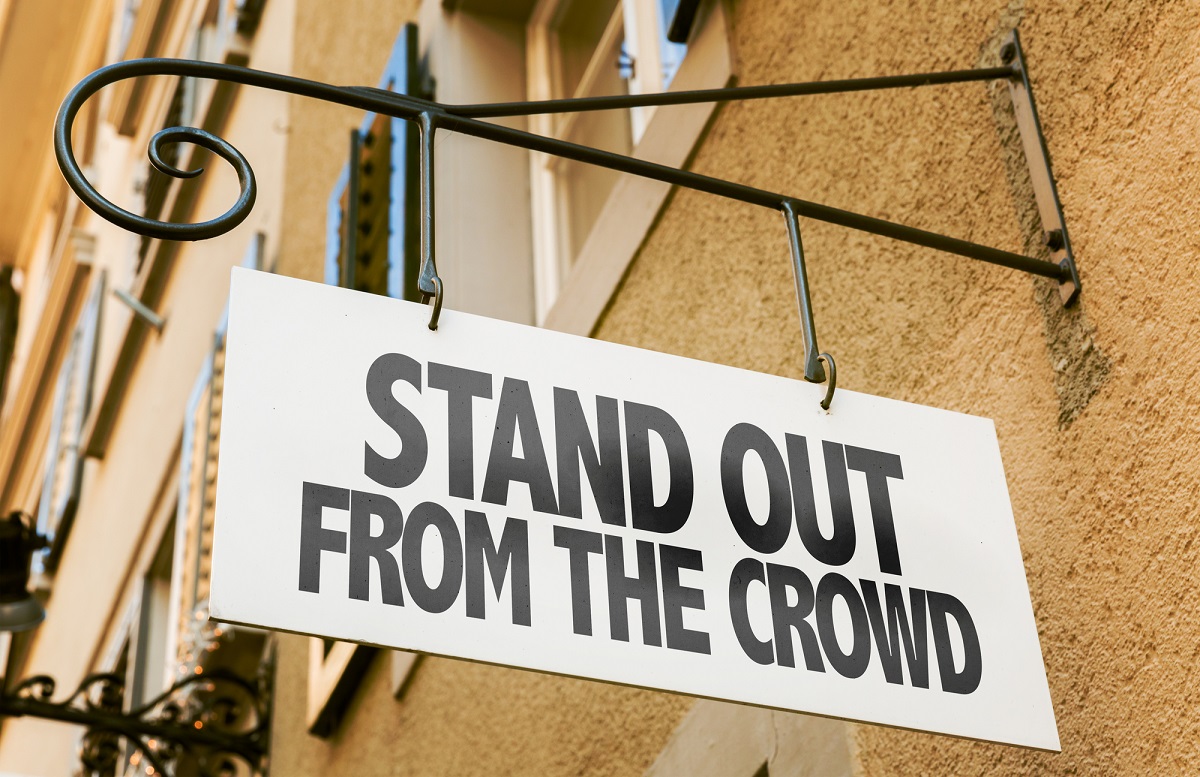How to Get Out of Retail Without a Degree?
A lot of young students get into retail early to pay for their studies, or just as a first job to gain some experience. But a lot of them feel like they are stuck there.
After all, they’ve spent years in retail, and that’s the only place they have experience in.
Does it sound familiar?
Working in retail can be a stepping stone to bigger and better thing, but it comes with plenty of challenges.
Maybe you thought you’d only use the job to pay for your studies, but you dropped out of school. Maybe you thought you’d only work for a year or two to learn how to be an excellent employee, and move onto greener pastures. Or maybe you really liked the idea of working in retail.
After a while though, you realize working in the field can be brutal. You work for a lot of hours every day, and you work weekends and holidays. It’s hard to have a good life while working in retail.
Plus, you don’t learn any hard skill. You’re serving clients, selling them something someone else made. You don’t learn how to do anything in particular. You are following orders and getting things done as efficiently as possible. It’s easy to fall into the line of thinking where you aren’t doing anything to advance your skills.
But this is a false belief. By working in retail, you develop plenty of soft skills. Many employers always seek these off, because they are so much easier to teach. Hard skills can be learned on the job somewhat quickly. But soft skills? They can take years to develop.
In this article, we are going to see what career paths you can look for outside retail. We are also going to see how you can polish up your resume, and what skills you have actually learned.

How to Switch Careers
You switch careers by finding a job in a different field. How? Well, most people will tell you to “apply to different jobs”, which is right, but it doesn’t paint the full picture.
Applying to other jobs is indeed how you switch career. After all, you need to pay your bills. But the scattergun approach of sending out applications to every job opening with little thought will not bear its fruits. Finding a job is a matter of numbers, but you can increase your chances of getting hired by rethinking your approach.
First off, think about what you would like to do. What did you love and hate about retail? Make a list of each pro and con you found while working there. Use there as a guide to pick your next job.
Most people dislike having to work holidays and weekends. Many people love having to interact with clients and help them solve problems. Weigh all these carefully. A boring back office job might not be the most exciting, but if you crave the regular work hours, it might be an excellent choice for you.
Now that you know your goal, it’s time to research the job market. See if there are any companies looking to fill in the position you are aspiring to. Research these companies to understand if you would be a good fit.
Once you have narrowed your choices down, update your resume. Or rewrite it completely. If you’ve been stuck in retail for long, your resume is probably old and outdated. If it is, do a full rewrite of it. Keep it short and sweet.
Recruiters don’t have as much time for you as you think. I’m not saying you are just a number to them, but you’re pretty damn close to one. If you don’t know how to frame your experience to make the skills you gained shine, don’t worry. I’ll give you some ideas later on in the article.
It’s time to apply to these companies. With a rock-solid resume, and your confidence in the skills you’ve gotten, it will be a breeze. If your resume makes you stand out, and you act like a well-adjusted human being at the interview, you won’t have any issue finding a new job.
Don’t underestimate your network either. Connect with other people, and talk to them. That’s where the proper opportunities are. Job boards are helpful, but the gold is in the people.
Retail doesn’t have to be a death sentence.
Getting a Certification
An underrated option is to get a certification of some sort to work in a new field. If you aren’t in a rush, look into schools that offer online courses. These are the most flexible ones. They’ll let you get a certificate while you learn at your own pace.
There are plenty of certification that will take less than 6 months to get, and that will open up many doors for you.
With a certification, finding a job will be significantly easier. You still need to follow the steps we outlined in the previous section, but if a certain hard skill is necessary, you are in a much better position to get the position.
Warning: make sure you know what you’re getting into before enrolling into a course. Calculate if you have the time to complete it. You could also quit your retail job, take a couple of months of pause, and pursue your certificate during that time.
Skills You Picked Up In Retail
Most people who worked in retail for a while don’t seem to realize they gained many useful skills. This happens because we think of skills as something we know how to do that has a physical manifestation. So, for example, knowing how to use complex design software and creating industrial part is a hard skill.
But hard skills aren’t the only thing you have at your disposal to get a job. There are soft skills too. These include things like dealing with pressure and people skills.
Retail has taught you to be approachable and helpful, and how to solve the customers’ problems. You know how to create a memorable shopping experience. That’s already better than most people who only have academic results on their resume.
But how do you put these skills on your resume without sounding like a dork? Let’s say you worked in a clothing store—though this will work with any retail position. You could write something like:
- I know how to deal with angry people. Customers aren’t always happy with their purchase, but my retail experience taught me how to deal with them. I can turn the angriest person in the world into a meek lamb.
- Working in retail taught me how to sell products. I can identify the customer’s issues, and offer the best solution with what I have available.
- Retail made me approachable. I’m always ready to lend an ear to a customer who’s having a rough time. This makes the customer trust me, and by extension, the company I work for.
- I have an eye for detail. I had to make sure everything looked flawless while serving clients and dealing with the storeroom.
Employers seek after many of these skills, because they are almost impossible to teach. We pick them up naturally by practicing them, but not every company has the resources to help its employees learn them.
Hard skills can be taught, soft skills have to be gained. It’s easier and more efficient to provide training for the former.
Career Ideas to Get Out of Retail
You want to get out of retail. You know you have what it takes, and you now have a killer resume. But you are unsure on what career to pick. It can be hard when you have done nothing else in your life.
It is possible you’ll have to retrain yourself for a new job, but you can also find a junior position that will teach you the ropes and make use of your skill set.
People who worked in retail are salespeople in disguise. You can get a job in sales and make use of everything you have learned. You know how to sell. You know how to deal with people. You know how to deal with objections. If you are good, you can make bank. The bills won’t pay themselves.
Another job that perfectly fits your skill set is customer service. You can become an account manager or a tier 2 support person. If you liked the part where you had to deal with people annoyed because their purchase wasn’t working as intended, you’ll find satisfaction in this line of work. The tech industry is looking for people with your skill set, more so than tech nerds who couldn’t look at another person in the eyes.
As a retail worker, you probably worked with numbers and computers. Plus, you have decent people skills. Those are wonderful traits of an office worker. If you are looking for a stable job, that’s a bit more chill, it could be the way.
If you want to leave the social jobs, you could look into a drastic change of direction. You could, for example, become a trucker. Driving these road monsters can seem daunting at first, but getting the respective driver license is a matter of weeks. You can get a CDL (Commercial Driving License) in 2 months if you devote yourself full-time to it. If you don’t want to drop your job yet, it’ll take a couple more months with part-time training.
If you are under 35, there is also the military. Getting in isn’t easy at all, and it’s an enormous commitment, but it can be the key to a good life. I put this last because it’s not for everyone. Some people are anti war. I can respect that, I’m anti war too. But the military isn’t only about war. The biggest perk of joining the military is that once you’re done with it, you’ll qualify for tens of programs designed to help veterans pursue higher education or find a new job.
Conclusions
Getting out of retail without a degree is possible. Be honest with yourself and make a list of the skills you gained. Then try to look for jobs where your skills would be a good fit.
If you can’t find anything, there are plenty of certifications you can get in a short time frame that will make you more employable. You’ll still have to put up with working retail for a couple more months, but at least you’ll see the light at the end of the tunnel.
My suggestion is to think about what you liked and disliked in your daily job, and use it as a starting point. You don’t know as much as you think to do. Write all pros and cons of working in retail, and then try to look for jobs that include the same pros and don’t have the same cons.
Once you know which path to take, improve your resume, network with people, and apply. We’ve given you some ideas of how you could frame your work experience in your resume, and there are millions of resources on the Internet. If you’re still unsure, you can always pay a professional to write your resume. It’s a substantial investment for your future.






